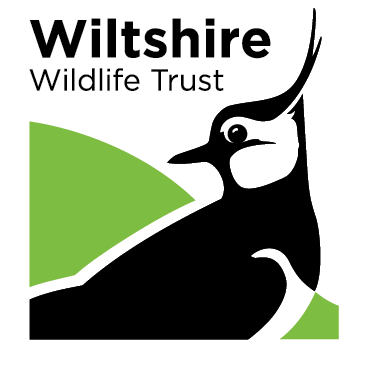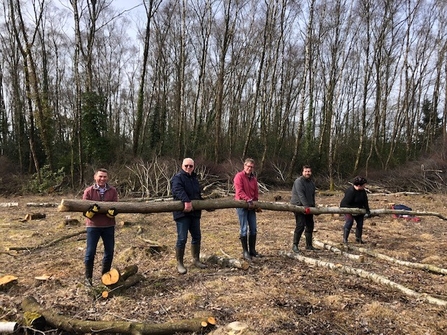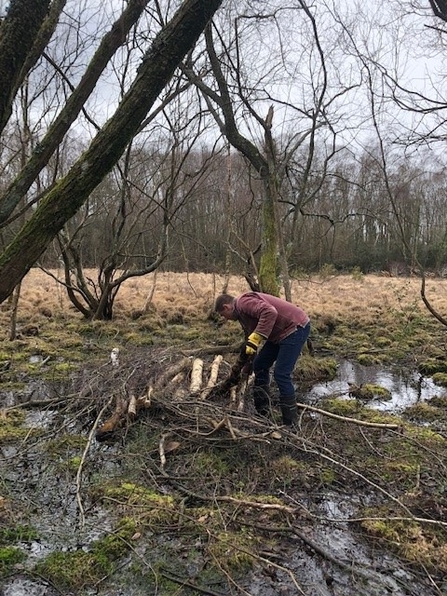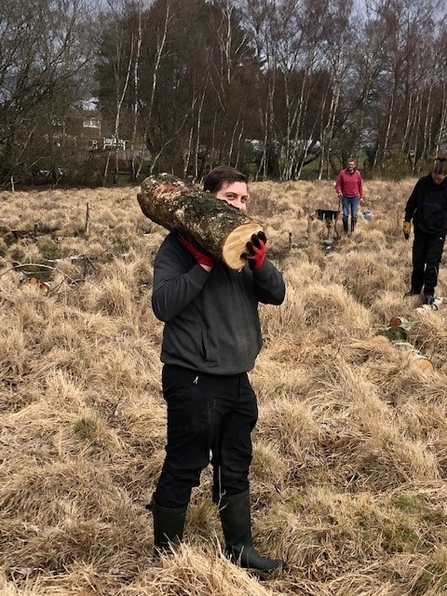Members of the Air Leadership Team from QinetiQ recently spent a day at Landford Bog, one of Wiltshire Wildlife Trust’s nature reserves in South Wiltshire on the edge of the New Forest and a designated Site of Special Scientific Interest (SSSI).
They spent the day volunteering by helping to ‘re-wet’ Landford Bog. QinetiQ has a Net Zero commitment, becoming carbon neutral by 2030, so they were delighted to be involved. It proved to be hard but very rewarding, educational work and opened the possibility of an enduring relationship between QinetiQ and Wiltshire Wildlife Trust.




